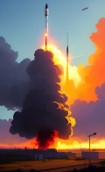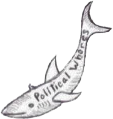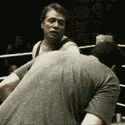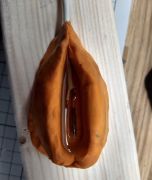|
On another sad note, looks like the supply situation for basic food stuff is getting pretty bad in Aleppo http://www.bbc.co.uk/news/world-middle-east-20692697 quote:Aleppo's winter of discontent
|
|
|
|

|
| # ? May 15, 2024 00:22 |
|
Just read this article in Foreign Policy magazine today: http://www.foreignpolicy.com/articles/2012/12/11/the_land_of_topless_minarets_and_headless_little_girls It is probably the best article about Syria that I have ever read, and also the most depressing. I am posting the article in it's entirety here because seriously, just read it. It's basically a Syrian writing a eulogy for his own country. quote:"In Italo Calvino's novel, Invisible Cities, a world traveler named Marco Polo describes the cities of a vast but crumbling empire to its ruler, Kublai Khan. Over time, the intricate descriptions of the cities begin to overlap until the khan slowly realizes that his appointed traveler has been describing the same city, an imagined city, over and over, in fragments -- each vignette exposing another perspective, unveiling yet another city, where death mirrors life and cities are named after Italian women. Each city is suspended between reality and imagination, structured on a set of absurd rules, reminding the reader that a city can only be absorbed through short glances, each glance anchored to an object, a story, or a memory. Also of note is the author's Twitter, which is a good resource for Syria-based things. https://twitter.com/AmalHanano I fear the situation in Syria has still not bottomed out. Things could always get worse 
|
|
|
The Entire Universe posted:Perhaps the order was to mine the roads That sentence gave me a sudden flash of a tank running into a big rear end naval mine embedded in the middle of the road.
|
|
|
|
|
dorkasaurus_rex posted:Just read this article in Foreign Policy magazine today: This is so beautiful and sad. Thank you for posting it.
|
|
|
|
I've just put together a piece on Grad rockets being increasingly common in the conflict.
|
|
|
|
dorkasaurus_rex posted:It is probably the best article about Syria that I have ever read, and also the most depressing. I am posting the article in it's entirety here because seriously, just read it. It's basically a Syrian writing a eulogy for his own country. That was a very excellent article, thank you. Now if you'll pardon me I'm going to go take a couple of pictures and give someone a hug.
|
|
|
|
People have already covered several reasons why the Syrian military would use ballistic missiles against the opposition: avoid air defenses, use whatever-the-gently caress that isn't chemical, parts/fuel issues, etc. There are a few more. Some tactical ballistic missiles (TBMs) are accurate enough to affect even smallish bases like the Syrian M-600. Others just aren't, like your run of the mill SCUD B, which is best left to shelling a city or targeting large things like an airbase or depot. There's no warning for the opposition forces. There's may not be much warning with aircraft, but a supersonic missile landing on you with 500+kg of high explosives such that it blows up before you hear it approach is something else entirely. It's indirect fire that you can't directly respond to by unless you are targeting a place potentially hundreds of kilometers away. If you're being mortared or shelled, it may be possible to drive up the road and take out the fire base. If supersonic explosives are landing on you, even if you know where it's coming from, it's really quite far away. There is just absolutely no way to for the opposition forces to shoot it down, which is more than can be said for aircraft. The footprint of a base which can launch missiles is much smaller than the footprint of a base which launches aircraft. Generally speaking, setting up force protection for a small TBM launch site/garrison is way easier than setting up force protection for a large base housing aircraft and a runway.
|
|
|
|
The sad thing about that Foreign Policy article is that it's ... sad. There's no anger, no call to action, not much polemic, just 'this was my city and now it is no more'
|
|
|
|
I think I remember Ghaddafi ended up firing scuds at the rebels in his final few days. His airforce was gone at that point so I wonder if Syrias airforce is starting to have serious problems with maintenace/morale/fear of getting shot down with more manpads available to the opposition and resorting to ballistic missiles.
|
|
|
|
Went back a few pages and didn't see anything about this Anyone translate? Supposedly a document incriminating some ME countries in sending death row convicts to fight in Syria? I'm skeptical just due to the crop of sites carrying it. ex: http://www.abna.ir/data.asp?lang=3&id=370958
|
|
|
|
Charliegrs posted:I think I remember Ghaddafi ended up firing scuds at the rebels in his final few days. His airforce was gone at that point so I wonder if Syrias airforce is starting to have serious problems with maintenace/morale/fear of getting shot down with more manpads available to the opposition and resorting to ballistic missiles. I wonder how that kind of shift in strategy will impact security on the air defense sites, which already seems kind of lax.
|
|
|
|
Charliegrs posted:I think I remember Ghaddafi ended up firing scuds at the rebels in his final few days. His airforce was gone at that point so I wonder if Syrias airforce is starting to have serious problems with maintenace/morale/fear of getting shot down with more manpads available to the opposition and resorting to ballistic missiles. How many ballistic missiles would Assad have to use? Also, I'd reckon that the FSA around Damascus will set up SCUD-buster teams eventually and use prevalent citizen recon to find them. They aren't staying hidden for long. They are not particular stealthy and quiet vehicles. And, once found, it doesn't take a whole lot to put them out of commission. Sniping engineers is probably the best way.
|
|
|
|
So do we have any estimates on how many SCUDs Assad has?
|
|
|
|
Young Freud posted:How many ballistic missiles would Assad have to use? Quite a few. Assad and his father built-up Syria's missile capability to offset Israel's conventional superiority. IIRC, Syria can assemble and maintain their own missiles, but need to import precision parts. The real question isn't so much "how many missiles?" as it is "how many launchers?" Syria could have thousands of missiles, but without a platform to launch them off of they aren't much use. Unless they go crazy and start dropping those out of helicopters too. Edit: I take the use of SCUDs as a sign that Assad is getting balls-out desperate. Things are not going well if you're launching inaccurate 500 pound bombs at your own country while trying to crush an insurgency. Zeroisanumber fucked around with this message at 03:45 on Dec 13, 2012 |
|
|
|
Scud isn't an acronym, it's a name NATO used for Soviet R-11 missiles during the Cold War. Now it's just used to reference any variants on that original design. 
|
|
|
|
colonelslime posted:Scud isn't an acronym, it's a name NATO used for Soviet R-11 missiles during the Cold War. Now it's just used to reference any variants on that original design. Learn a new thing everyday.
|
|
|
|
Young Freud posted:How many ballistic missiles would Assad have to use? The problem is your run of the mill SCUD can hit anywhere in Syria from anywhere else. As long as Assad doesn't have to transport the missiles very far to launch them it will be difficult for the FSA to do much in response.
|
|
|
|
SedanChair posted:Democracy Now! reports 200 Alawites killed or injured in an unnamed village. quote:NY Times BrutalistMcDonalds fucked around with this message at 05:57 on Dec 13, 2012 |
|
|
|
Terrifying Effigies posted:The problem is your run of the mill SCUD can hit anywhere in Syria from anywhere else. As long as Assad doesn't have to transport the missiles very far to launch them it will be difficult for the FSA to do much in response. True. But some of the reports I read is that they're firing them off around Damascus, so I can't imagine they're being subtle about it. They're probably well-guarded as well, considering the level of FSA and sympathizers in the city. And while he can fire them off and move them, they still have the problem as with anything getting transported through Syria, having to deal with IEDs and ambushes. A bunch of Scud launchers getting hijacked or blown up in a cross-country convoy would push Assad's poo poo in, even if the FSA has little idea how to use them. I get the idea that their fairly rare and valuable. How well is does Assad have south Syria under his control?
|
|
|
|
Zeroisanumber posted:Learn a new thing everyday. It really does sound like it should be an acronym, but the name comes from the fact that NATO used the ASIC practice of naming surface-to-surface missiles with names starting with S. SS 1 Scud was the R-11, SS 4 Sandal was the R12, there were also the SS 2 Shyster, the SS 6 Sapwood, and a few others I can't remember. This is the first time I've ever used anything from my North America defense policy class. Political Whores fucked around with this message at 05:59 on Dec 13, 2012 |
|
|
|
Omi-Polari posted:Follow-up here: Don't forget the "Syrian Observatory for Human Rights" is, despite its grandiose name, just one guy in the UK who claims to have a network of informants in Syria. Given the NY times and other western media's history of citing disgruntled exiles when cheerleading for western intervention in foreign countries I can't take such stories at face value. It'd be like trusting a story about the US whose only source is that guy who defected to North Korea.
|
|
|
|
Zeroisanumber posted:Learn a new thing everyday. And to  beyond that, a scud is a low lying, fast-moving cloud that is detached from a larger cloud formation. You've seen them dozens of times, but just never knew they had a name (at least that's the way it was for me until I looked it up). beyond that, a scud is a low lying, fast-moving cloud that is detached from a larger cloud formation. You've seen them dozens of times, but just never knew they had a name (at least that's the way it was for me until I looked it up). The spindly, fragmented clouds are called scuds.
|
|
|
|
Are Scuds specifically named after the cloud, or was it chosen at random? I don't understand where Sandal missiles got their name, and I heard that the naming process is always arbitrary for these things.
|
|
|
|
Chamale posted:Are Scuds specifically named after the cloud, or was it chosen at random? I don't understand where Sandal missiles got their name, and I heard that the naming process is always arbitrary for these things. I assumed it was related to that, but perhaps just because it started with S and was a real word, without caring for what it represented.
|
|
|
|
Deteriorata posted:I assumed it was related to that, but perhaps just because it started with S and was a real word, without caring for what it represented. Kinda like "fagot", which was used for the Russians' guided anti-tank missile.
|
|
|
|
Young Freud posted:Kinda like "fagot", which was used for the Russians' guided anti-tank missile. Which is also a valid word that didn't become exclusively a slur until a while after.
|
|
|
|
Young Freud posted:Kinda like "fagot", which was used for the Russians' guided anti-tank missile.
|
|
|
|
Charliegrs posted:I think I remember Ghaddafi ended up firing scuds at the rebels in his final few days. His airforce was gone at that point so I wonder if Syrias airforce is starting to have serious problems with maintenace/morale/fear of getting shot down with more manpads available to the opposition and resorting to ballistic missiles. An active air-force can cause a lot more damage with missiles and bombs than any ground based unit. From the beginning, Assad's weapons were better than القذافي, or however Mahgrebian or MSA want his name spelled. And anybody who heard the "gum cooker" story of the Syrian torture chambers knows that the nations military is particularly demented and violent even by the standards of the region. I think it's safe to say the decision not to enforce a no-fly zone over Syria will go down as the greatest foreign policy mistake of the decade. At the very least, the casualties would've been lower, and the rebels wouldn't have had to get their anti-aircraft and anti-tank weapons from Islamist lunatics. Heavy bloodshed and outmatched weaponry only breeds crazier and crazier rebels. I don't know how much longer the Syrian Rebs can keep from turning into the absolute most brutal psychopaths possible in an effort to win a la the PKK or Hamas, but I do know their descent into dementia can be slowed a few months if somebody stops Assad's air-force.
|
|
|
|
Young Freud posted:Kinda like "fagot", which was used for the Russians' guided anti-tank missile. That means "bassoon" in Russian, by the way. Of course people will get all childish about the word though. The NATO called it Spigot.
|
|
|
|
OwlBot 2000 posted:That means "bassoon" in Russian, by the way. Of course people will get all childish about the word though. The NATO called it Spigot. Haha, I'm stupid. I got carried away with some meme I read on a military imageboard. But someone brought up the thing about the MiG-15 being called that by NATO so the point stands. I remembered there was something called "Fagot" by NATO, just screwed up what was called it.
|
|
|
|
Devil Child posted:And anybody who heard the "gum cooker" story of the Syrian torture chambers knows that the nations military is particularly demented and violent even by the standards of the region. Heard the what?
|
|
|
|
hepatizon posted:Heard the what?
|
|
|
|
Yikes. I'm beginning to think this Assad guy is a bit of an unsavory character.
|
|
|
|
Not sure if I saw this seemingly effective trebuchet(!) in BM's youtube playlist of improvised weapons. http://www.liveleak.com/view?i=c68_1355241473
|
|
|
|
Scuds were used a lot and quite effectively during the Afghanistan civil war after the Soviets left. Thousands were left to the Afghan government and were almost all fired on rebel forces that had to assemble numbers to attack the cities still in the hands of the government. Its random nature and lack of warning made it all the more effective. Scuds being usec may indicate the presence of large rebel units that a Scud could be used against or just a spiteful attack on an area held by the rebels.
|
|
|
|
7of7 posted:Don't forget the "Syrian Observatory for Human Rights" is, despite its grandiose name, just one guy in the UK who claims to have a network of informants in Syria. Yes, it does however mentioned videotaped statements supposed to be from survivors. So there is more to go on than the statements from that one guy. The only thing directly sourced from him only seems to be the casualty number. You could then of course speculate whether the survivor videos were faked. Did you come across any Brown Moses?
|
|
|
|
Zeroisanumber posted:Quite a few. Assad and his father built-up Syria's missile capability to offset Israel's conventional superiority. IIRC, Syria can assemble and maintain their own missiles, but need to import precision parts. Thousands? Do You have a source for that, or is this just wild speculation? One of the sources linked on the Brown Moses blog seems to think that it's a lot less than that: quote:It is believed Syria had at least 48 Scud missiles at the outset of the crisis, meaning more than 10 per cent of its entire arsenal has now been used. Invalido posted:Not sure if I saw this seemingly effective trebuchet(!) in BM's youtube playlist of improvised weapons. You know, between this and BM's home made weapon posts, why do I get the feeling this war would be over next week if someone just airdropped a dozen crates of playstation controllers and Arduino boards to the FSA? I thought the Libyans were resourceful, but these guys are just amazing. 
Svaha fucked around with this message at 11:30 on Dec 13, 2012 |
|
|
|
Svaha posted:You know, between this and BM's home made weapon posts, why do I get the feeling this war would be over next week if someone just airdropped a dozen crates of playstation controllers and Arduino boards to the FSA? I thought the Libyans were resourceful, but these guys are just amazing. One of my various Syria related Youtube playlists is dedicated to DIY weapons, so plenty of weird and wonderful things to see there. Munin posted:Yes, it does however mentioned videotaped statements supposed to be from survivors. So there is more to go on than the statements from that one guy. The only thing directly sourced from him only seems to be the casualty number. Not many, although I've been in a rush catching up the last couple of days, so might have missed them among the dozens of videos showing injuries and deaths from other parts of the country. The sad fact is dead and injured people aren't something that's unusual enough for me to take that much notice of during my daily trawl through Youtube channels.
|
|
|
|
Brown Moses posted:One of my various Syria related Youtube playlists is dedicated to DIY weapons, so plenty of weird and wonderful things to see there.
|
|
|
|

|
| # ? May 15, 2024 00:22 |
|
Svaha posted:It's like a post-apocalyptic maker fair. It's sort of mind boggling when you think what could happen in a few decades when 3d printer fabrication is more commonplace and DIY weaponized drones start to enter the mix. The world becomes Thunderdome. 
|
|
|




































